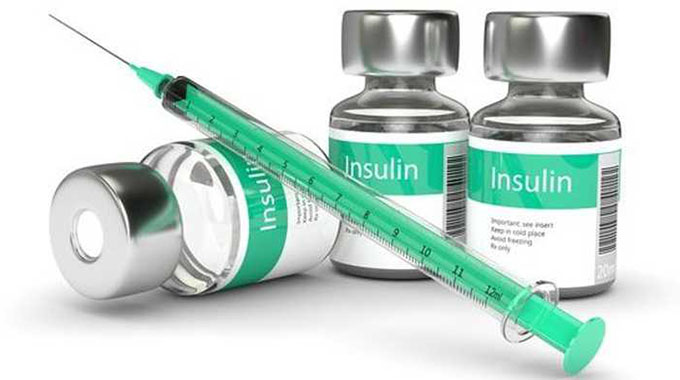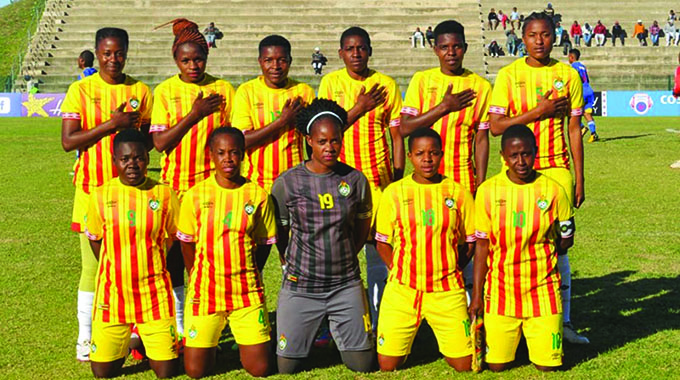#insulin4all is a realistic dream

Yemurai Machirori Features Correspondent
Ninety eight years ago, in 1921, Frederick Banting discovered insulin. Since he felt it was unethical for a doctor to profit from a discovery that would save lives around the world, he refused to put his name on the patent. Banting’s co-inventors, J.J.R Macleod, James Collip and Charles Best, however, sold the insulin patent to the University of Toronto.
In the humanitarian spirit of making accessible and affordable medicines to those who need it the inventors sold the patent for a mere $1, an amount which cannot be compared to the exorbitant prices that pharmaceutical companies or “Big Pharma” have pegged insulin prices in recent times.
As questions of accessibility of insulin have begun to take centre stage over the last few years, one concern that no one has been able to address in aiming for #insulin4all is how to define the real cost of insulin to those affected by diabetes.
In most parts of the world, Zimbabwe included, beyond the cost of the drug are other intertwined issues such as individuals rationing medicines due to high cost of insulin, or health providers limiting supplies when there are limited safe storage facilities. As such, people end up travelling long distances from their small community health centres to big hospitals to be able to access their diabetes supplies. Thus, the cost of diabetes health service is beyond just the costs of insulin, syringes, glucometers and other diabetes supplies as people with diabetes have in addition have to bear “indirect” costs such as transport, accommodation and sustenance while travelling and for some, loss of paid work.
It is the responsibility of government, civil society, funders and society at large to work together to make quality diabetes healthcare and medicines especially insulin accessible and affordable.
Failure to address individual costs will easily become economic and societal costs in the country. Reduced productivity of a working-age population, increased health bills for society and increased burden of care-givers are all examples of how ignoring the needs of diabetes sufferers can create a cycle of economic burden that will only continue to grow.
As such, those in public offices must be able to protect people with diabetes against pharmaceutical companies that are profiteering at the cost of people’s lives.
Recent statistics (published in October, 2018) the World Health Organisation (WHO) highlight that approximately 422 million people suffer from diabetes worldwide with 10 percent of that population being type one diabetic. This means that at least 42,2 million people are dependent on insulin, with a significant number of people who live with type two diabetes also relying on insulin to survive.
Locally, the International Diabetes Federation’s atlas (2017), approximates that 10 percent of Zimbabwe’s population suffers from diabetes.
Even though the statistics for type one diabetes are not known, it is well known that the number of people, especially young people being diagnosed with type one diabetes has increased significantly since the last diabetes census which was conducted over a decade ago. In a country with high unemployment rate and a youthful population, the impact of such statistics on the economy are staggering.
It has become a story of shattered dreams . . .
It is a sad reality that some young people with diabetes see their lives as ruined by the diagnosis. It is additionally heartbreaking that a significant number of people living with type one diabetes ration their insulin because they are either unemployed or because their parents cannot afford the drug.
In some cases, parents have to choose between sending their children to school and buying insulin for their children, while in other cases, other children have to forego some things so that their parents can cater for the diabetic child. Such shattered dreams are therefore not only for the diabetic child, but for the whole family.
Almost one hundred years after the discovery of insulin, it is almost impossible to believe that people have to endure several difficulties in accessing a lifesaving drug. Health care systems need to be strengthened, politicians in government need to take responsibility and “Big pharma” need to act ethically and with compassion if the lives of those who depend on insulin are to be saved from certain death or reduced quality of life. In this regard #insulin4all is a realistic dream.
A story of lives cut short . . .
These stories of everyday life in Zimbabwe are not too different from the narratives told by most people living with diabetes in developing countries.
The cost of diabetes medications is out of reach for most people across the country with a month’s supply of insulin costing between $150 and $2 000 depending on the type of insulin one uses. As people become increasingly unable to afford insulin with the sky-rocketing and out of pocket expenses, their lives are cut short. Given the high unemployment rate, it is, once again, common for people to either ration their supplies of insulin or completely forego this life-sustaining drug until they have managed to secure money to buy the drug (if they do).
What we are witnessing now is diabetes transitioning for many, from a chronic disease to a ticking time bomb that is waiting to destroy the lives of many young people. That these young people are at risk of developing diabetes related complications in the future is an added pressure point. It appears that most people are now awaiting their deaths because of lack of a drug that has been available for close to a century, but which they increasingly cannot access or afford.
What to do next?
The question that most people would like answers to, to achieve the goal of #insulin4all in the not so distant future is ‘what next?’ What happens after the rationing of insulin? When will we agree that enough lives have been cut short because of lack of insulin? In order for us to move forward, we need to agree that a solution is needed sooner than we thought. Economies will be devastated if type one diabetes and the issue of insulin affordability and availability are not tackled now. The risks of complications will continue to increase. Young lives will continue to be lost.
It is vital for people with diabetes to stand up and make “noise” about this devastating condition. It is not only those affected by diabetes that must fight and make noise. One of the immediate movements must be Government interventions. Those in high office should support and stand with people living with diabetes, to hold pharmaceutical companies to account for these high costs of diabetes drugs before the cost of diabetes becomes higher than it already is.
As we try to find solutions to the diabetes crisis that is fast already a global phenomenon, it is highly important for society to be included in a holistic way. People in public offices must be able to protect the people it serves and be held accountable if they fail; the private sector is ordinarily made up of businesses that want to make profits and also supply many of the goods and services people need (in this case our pharmaceutical companies); and the public sector comprises of local communities and not-for-profit making organisations that provide the “social affiliations” that are needed.
It is important to note that during the fight against HIV and AIDS, each of these stakeholders played a role in improving access and affordability of drugs. In this light, activist groups raised awareness of the issue and advocated for access to treatment. People in public offices provided funding and responses on both a national and global level.
Finally, the private sector played its role, under pressure from civil society and governments, in lowering the price of medicines and developing programmes to expand access. With that being said; how many more deaths are we willing to see before making this life-saving drug affordable and accessible to those who need it. Will #insulin4all ever be a reality for people living with diabetes?
#insulin4all is a campaign that was started by an advocacy organisation called T1International and is led by people living with type 1 diabetes all over the world.








Comments